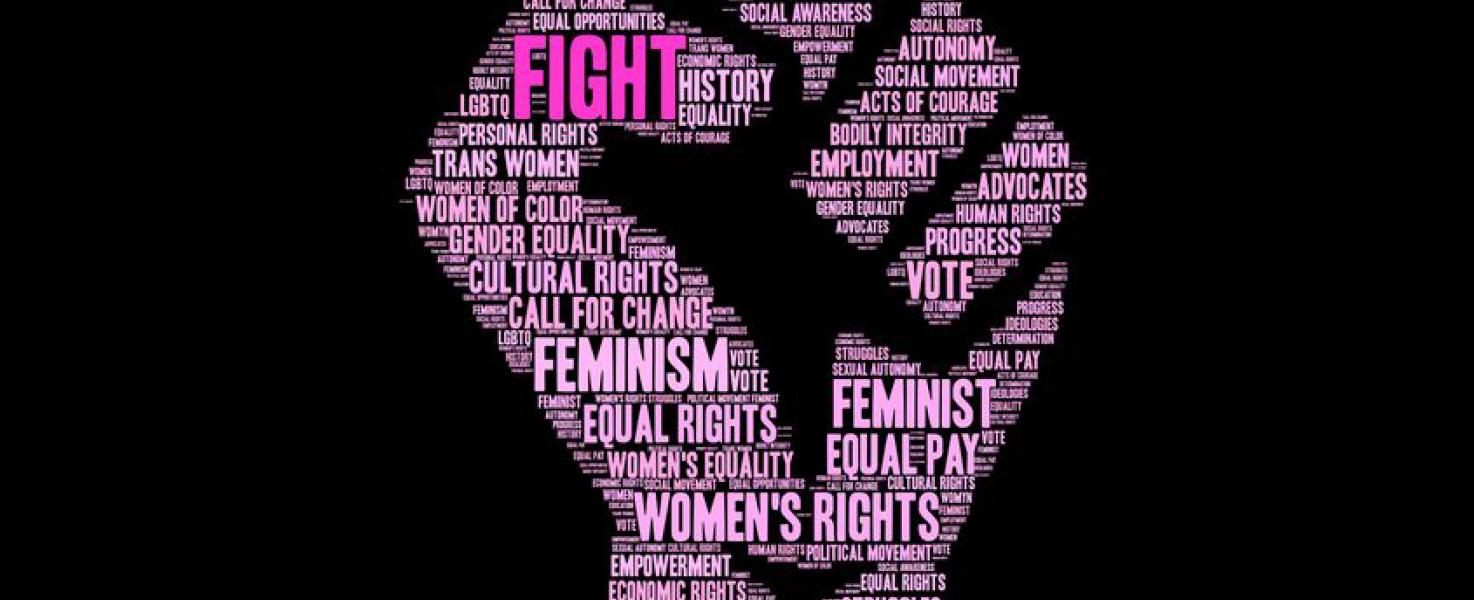College of Liberal Arts & Sciences

Bachelor of Arts in Social Justice
Students who major in social justice expand their knowledge integrating theory and engagement with "real world" field experiences. They approach social justice through the arts, history, literature, comparative religious studies, political science, philosophy, health education, and gender, women's & sexuality studies.
Social justice students:
- explore how the intersections of geography, race, class, gender, sexuality, health, economics, and history create networks of privilege and oppression across the globe through coursework and reflect on situations they encounter in the field;
- read, write, listen, and act through course work and fieldwork in order to understand how conditions are created for change on the local, regional, and national level historically, ethically, politically, and personally;
- learn about selected history of social movements, how those movements emerged, and the impacts those movements had on policy, populations, the environment, and culture through engagement in a core course;
- develop a deeper understanding of issues, practice, research, and theory related to social justice in one or more areas of study within the traditional disciplines of the liberal arts through 9 s.h. of coursework in an area of specialization; and
- prepare for employment and/or for graduate study in various fields through high quality internships and educational experiences including anthropology, political science, law, criminology, health, the cultural sector, social services, business, non-profit management, or public history projects
Our email address is CLAS-Social-justice@uiowa.edu
Requirements
The BA in social justice (SJUS) requires a minimum of 39 semester hours (s.h.) and completion of the the College of Liberal Arts and Sciences (CLAS) general education Program, for a total of at least 120 s.h.. All majors are required to complete a capstone experience. Students earning more than one major may count a maximum of 6 s.h. completed for another major toward the social justice major.
Work for the major consists of the undergraduate foundation, core courses, emphasis area, and capstone.
Foundation (12 s.h.)
The foundation consists of four courses (minimum of 12 s.h.). Two introductory courses, SJUS:1001 Introduction to Social Justice and GWSS:1002 Diversity and Power in the U.S., orient students to the major conceptual areas that constitute social justice as an interdisciplinary field; SJUS:2250 The History of Social Justice Movements explores past and present social justice movements in the U.S. and their impact on policy and culture; and GWSS:3138 Writing to Change the World provides students with opportunities to enhance their writing skills to effect change.
| SJUS:1001 | Introduction to Social Justice | 3 |
| SJUS:2000 | Theories of Social Justice | 3 |
| SJUS:2250 | The History of Social Justice Movements | 3 |
| GWSS:3138 | Writing to Change the World | 3 |
Core
Human Rights, Diversity, Activism
Two courses from the list found here
Social Justice Movements: Politics, History, Culture, Art
Two courses from the list found here
Emphasis Areas
Students choose one emphasis area and complete three or more courses for 9 s.h.; two courses must be numbered 3000 and above. A course used to satisfy the core requirement cannot be taken to satisfy an emphasis area. You may substitute courses with approval of the social justice advisor. Students may also include one course from International Programs related to studying abroad and social justice including the India Winterim Program. Students may also create their own emphasis area with help from the social justice advisor. Courses satisfying each area may be found here.
- The Arts and Social Change
- The Environment and Ecological Justice
- Gender, Women's & Sexuality Studies
- Global and Transnational Studies
- Health
- Race and Ethnicity in the U.S.
Capstone
Social Justice majors complete all of the requirements for one of the major's two program Capstones, for a total of 6 s.h.. Program capstone requirements are not interchangeable.
Program option A:
Students complete a senior project and the following two courses.
In the fall semester of their final year, students complete SJUS:3400 Advocacy and Engagement Colloquium which requires community service work at a related social justice organization. In the spring, students complete SJUS:4080 Advocacy and Engagement Capstone, in which they develop an individual creative or scholarly project that pulls together their lived and community experiences, their academic learning, and significant research. The project culminates with a poster shown at the Senior Research Poster Show.
| Course number | Course title | Semester offered |
Semester hours |
| SJUS:3400 | Advocacy and Engagement Colloquium | Fall | 3 |
| SJUS:4080 | Advocacy and Engagement Capstone | Spring | 3 |
Program option B: Students prepare for the capstone by completing GWSS:3900 Creative and Critical Practice: Theories, Methods, and Skills for the Capstone Senior Project during the fall semester which focuses on developing advanced research, reading, and writing skills and choosing their capstone topics. Senior Research Seminar (GWSS:4090), taken during the spring semester of their final year, provides a platform for students to share their capstone research and writing. Students create either extended essays that document their research using the style manual of their choice or produce creative work alongside an annotated research bibliography. At the end of the semester, students make posters that represent the subject, content, and significance of their research and present them at the Senior Research Seminar Poster Show.
| Course number | Course title | Semester offered |
Semester hours |
| GWSS:3900 | Research for Public Engagement | Fall | 3 |
| GWSS:4090 | Senior Research Seminar | Spring | 3 |